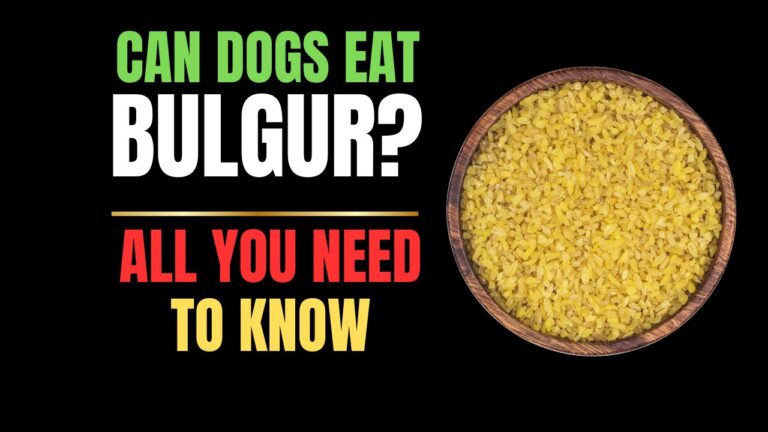
Can Dogs Eat Peas?
Peas are a common vegetable found in many households and are increasingly included in commercial dog foods. These small, round greens offer nutritional benefits but also come with important considerations for dog owners.
While most dogs can safely enjoy peas as an occasional treat, understanding the different types of peas, proper preparation methods, and potential concerns is essential for responsible pet ownership. Peas can be a healthy addition to your dog's diet when fed appropriately.
This comprehensive guide covers everything you need to know about feeding peas to dogs, from nutritional benefits to preparation guidelines and potential health considerations. Whether you're considering adding peas to your dog's diet or simply want to be informed, this information will help you make the best choices for your canine companion.
Introduction
Peas are members of the legume family and come in several varieties, each with slightly different nutritional profiles and considerations for canine consumption. These small vegetables are packed with vitamins, minerals, and fiber that can benefit dogs when fed properly.
Peas Through History
Peas have been cultivated for thousands of years, with evidence of their consumption dating back to ancient times in the Middle East and Europe. They were among the first crops domesticated by humans and have been a staple food in many cultures. In recent decades, peas have gained popularity in pet food formulations due to their nutritional profile and as an alternative carbohydrate source to grains. Understanding this historical context helps explain why peas are now commonly found in both human and pet foods.
The Short Answer
Yes, most dogs can safely eat peas in moderation. Fresh or frozen green peas, snow peas, and sugar snap peas are generally safe when prepared properly. However, canned peas should be avoided due to high sodium content, and peas should only be an occasional treat rather than a dietary staple.
| Pea Type | Safety Level | Key Considerations |
|---|---|---|
| Fresh Green Peas | Safe in Moderation | Best option, no additives |
| Frozen Peas | Safe in Moderation | Check for added salt or seasonings |
| Snow Peas | Safe in Moderation | Can be fed pod and all |
| Canned Peas | Not Recommended | High sodium, potential preservatives |
Types of Peas and Their Safety
Not all peas are created equal when it comes to canine consumption. Understanding the differences helps ensure you're offering the safest options to your dog.
(English Peas)
Green Peas
The most common variety, typically removed from the pod before eating. Rich in protein, fiber, and vitamins. Safe for dogs when cooked or served raw in moderation.
Snow Peas
Flat pods with tiny peas inside. The entire pod is edible and provides additional fiber. Safe for dogs when chopped to prevent choking.
Sugar Snap Peas
Plump pods with full-sized peas. Sweet and crunchy, the entire pod is edible. Safe for dogs when prepared properly.
Safe Pea Varieties for Dogs
| Pea Type | Preparation | Safety Notes |
|---|---|---|
| Fresh Green Peas | Raw or lightly cooked | Remove from pods, serve plain |
| Frozen Peas | Thawed or lightly cooked | Check ingredients for additives |
| Snow Peas | Raw or lightly cooked | Chop pods to prevent choking |
| Sugar Snap Peas | Raw or lightly cooked | Chop pods to appropriate size |
Peas to Avoid
Some pea products and preparations should be avoided entirely. Canned peas typically contain high levels of sodium that can be harmful to dogs. Processed pea products like wasabi peas or seasoned pea snacks often contain spices, salt, or other ingredients that are unsafe for dogs. Additionally, avoid feeding dried raw peas as they can be difficult to digest and may pose a choking hazard. Always opt for fresh or frozen peas with no added ingredients when sharing with your dog.
Unsafe Pea Products
- Canned Peas: High sodium content, potential preservatives
- Seasoned Pea Snacks: Often contain salt, spices, or flavorings
- Wasabi Peas: Contain spicy seasonings harmful to dogs
- Dried Raw Peas: Choking hazard, difficult to digest
- Pea Products with Additives: Check labels for unsafe ingredients
Health Benefits of Peas for Dogs
When fed appropriately, peas can offer several nutritional benefits for dogs. Understanding these advantages helps put the potential risks in proper perspective.
Vitamins & Minerals
Nutritional Powerhouse
Peas are rich in vitamins A, B, C, and K, as well as minerals like iron, zinc, potassium, and magnesium. These support overall health, immune function, and cellular processes.
Vitamin rich
Fiber Content
Digestive Health
The high fiber content in peas supports healthy digestion and can help regulate bowel movements. Fiber also contributes to feelings of fullness, which can aid in weight management.
Digestive support
Protein Source
Plant-Based Protein
Peas provide plant-based protein that supports muscle maintenance and repair. While not a complete protein source for dogs, they can complement animal-based proteins in the diet.
Muscle support
Nutritional Profile of Peas
Peas in Commercial Dog Food
Many high-quality commercial dog foods now include peas as an ingredient. They serve as an alternative carbohydrate source to grains, which can be beneficial for dogs with grain sensitivities. Peas in commercial diets are typically processed to improve digestibility and are balanced with other ingredients to create a complete nutritional profile. However, it's important to note that the peas in commercial dog food are just one component of a balanced diet and shouldn't be the primary protein source for most dogs.
Additional Nutritional Benefits
| Nutrient | Benefit for Dogs | Amount in 1 Cup Cooked |
|---|---|---|
| Vitamin A | Vision health, immune function | 38% DV |
| Iron | Oxygen transport, energy production | 16% DV |
| Potassium | Nerve function, fluid balance | 20% DV |
| Folate | Cell growth, DNA synthesis | 25% DV |
Potential Concerns with Peas
While peas offer nutritional benefits, there are important considerations that dog owners should be aware of before adding them to their pet's diet.
Purines Content
Peas contain moderate levels of purines, which break down into uric acid. For dogs prone to certain types of bladder stones or with specific metabolic conditions, this could potentially contribute to health issues.
Carbohydrate Content
While peas are a healthy carbohydrate source, they are relatively high in carbs compared to other vegetables. Dogs with diabetes or weight issues may need their pea intake monitored.
Lectins and Phytates
Like other legumes, peas contain natural compounds called lectins and phytates that can interfere with nutrient absorption. Cooking helps reduce these compounds.
| Concern | Risk Level | Management Strategy |
|---|---|---|
| Purines | Low to Moderate | Feed in moderation, avoid for dogs with urate stones |
| Carbohydrates | Low | Monitor for diabetic dogs, feed in appropriate portions |
| Lectins & Phytates | Low | Cooking reduces these compounds |
| Digestive Issues | Low to Moderate | Introduce slowly, cook for better digestibility |
Dogs at Higher Risk
Certain dogs should avoid peas entirely or have them only under veterinary supervision. These include dogs with a history of urate bladder stones (common in Dalmatians and English Bulldogs), those with kidney disease, and dogs with specific metabolic conditions. Additionally, dogs with diabetes may need their pea intake carefully monitored due to the carbohydrate content. If your dog falls into any of these categories, consult your veterinarian before introducing peas to their diet.
When to Avoid Peas Entirely
Consider avoiding peas if your dog has:
- History of urate bladder or kidney stones
- Diagnosed kidney disease
- Poorly controlled diabetes
- Known sensitivity or allergic reaction to peas
- History of digestive issues with legumes
- Certain metabolic disorders affecting purine metabolism
Safe Pea Preparation for Dogs
Proper preparation is key to maximizing the benefits of peas while minimizing potential risks. Follow these guidelines for safe feeding.
Recommended Preparation Methods
| Method | Benefits | Preparation Notes |
|---|---|---|
| Steaming | Preserves nutrients, improves digestibility | Steam until tender, no salt or seasonings |
| Boiling | Softens peas, reduces anti-nutrients | Brief boil, drain thoroughly, no salt |
| Raw (for green peas) | Preserves heat-sensitive nutrients | Serve fresh, ensure peas are tender |
| Mashing | Easy to digest, good for seniors or small dogs | Cook until soft, mash with fork |
Preparation Methods to Avoid
| Method | Risks | Reason to Avoid |
|---|---|---|
| Buttered Peas | High Risk | High fat content, potential digestive upset |
| Creamed Peas | High Risk | Dairy, fats, often contains onions |
| Seasoned Peas | Moderate Risk | Salt, spices, or toxic ingredients like onion/garlic |
| Fried Peas | High Risk | High fat, potential digestive issues |
The Importance of Plain Preparation
When preparing peas for your dog, it's crucial to avoid adding any seasonings, oils, butter, salt, or other ingredients that could be harmful. Many human pea recipes contain ingredients like onions, garlic, salt, or dairy products that are toxic or difficult for dogs to digest. Plain, cooked peas are the safest option. If you're using frozen peas, check the ingredient list to ensure they contain only peas with no added salt or seasonings.
Safe Preparation Checklist
- Choose fresh or frozen peas with no additives
- Wash fresh peas thoroughly
- Remove peas from pods if using English peas
- Cook using steaming or boiling with water only
- Allow peas to cool completely before serving
- For snow or sugar snap peas, chop pods into bite-sized pieces
- Serve plain with no salt, oil, butter, or seasonings
- Introduce slowly to assess tolerance
- Mash for small dogs, seniors, or those with dental issues
Portion Guidelines for Peas
Moderation is key when feeding peas to dogs. These guidelines help ensure your dog benefits from peas without overdoing it.
General Portion Recommendations
| Dog Size | Recommended Portion | Frequency |
|---|---|---|
| Small (5-20 lbs) | 1-2 teaspoons | 2-3 times weekly maximum |
| Medium (21-50 lbs) | 1-2 tablespoons | 2-3 times weekly maximum |
| Large (51-90 lbs) | 2-3 tablespoons | 2-3 times weekly maximum |
| Giant (90+ lbs) | 1/4 cup | 2-3 times weekly maximum |
Peas as Part of a Balanced Diet
The 10% Rule for Treats
Veterinary nutritionists generally recommend that treats and extras (including vegetables like peas) should make up no more than 10% of your dog's total daily caloric intake. The remaining 90% should come from a nutritionally balanced commercial dog food or a properly formulated homemade diet. This ensures your dog receives all the essential nutrients in the right proportions while still allowing for some dietary variety. Peas should be just one component of that 10% treat allowance, not the entirety of it.
Feeding Frequency Guidelines
- For most dogs: 2-3 times per week maximum
- For dogs with no health concerns: Up to 4 times weekly in small amounts
- For dogs at higher risk: Consult your veterinarian before feeding
- For puppies: Tiny amounts occasionally after 6 months of age
- For senior dogs: Consider individual health status and consult your vet
Frequently Asked Questions
Puppies can have small amounts of cooked, plain peas once they're eating solid food regularly, typically around 6-8 months of age. However, puppies have specific nutritional needs for growth and development, so peas should only be an occasional treat. Start with just one or two peas to ensure your puppy tolerates them well. The majority of their nutrition should come from a high-quality puppy food formulated for their developmental stage. Always consult your veterinarian before introducing new foods to puppies.
Yes, frozen peas are generally safe for dogs and can be a convenient option. However, it's important to check the ingredient list to ensure no salt, seasonings, or other additives have been included. Some dogs may find frozen peas difficult to chew, so you might want to thaw them first or lightly cook them. Frozen peas can actually be beneficial for teething puppies as a soothing treat, but always supervise your dog to prevent choking. Whether using fresh or frozen, peas should always be served plain with no additions.
Dogs can eat the pods of snow peas and sugar snap peas, as these are tender and edible. However, the pods of English peas (green peas) are tough, fibrous, and difficult to digest, so they should be removed. When feeding pea pods, always chop them into appropriate sizes to prevent choking, especially for small dogs. The pods provide additional fiber, which can be beneficial for digestion. Introduce pea pods gradually to ensure your dog tolerates them well, and always monitor for any signs of digestive upset.
While most healthy dogs can enjoy peas in moderation, some breeds may be at higher risk for issues. Breeds predisposed to urate stones include Dalmatians, English Bulldogs, and Russian Black Terriers. These breeds might be more susceptible to developing stones when consuming high-purine foods like peas. Additionally, dogs with certain metabolic conditions or those prone to kidney issues should avoid peas or have them only under veterinary guidance. When in doubt, consult your veterinarian about whether peas are appropriate for your specific dog.
Dogs with diabetes can eat small amounts of peas occasionally, but their intake should be carefully monitored. Peas contain carbohydrates that can affect blood sugar levels. If your diabetic dog enjoys peas, work with your veterinarian to incorporate them into their meal plan appropriately. The portion size and timing may need to be adjusted based on your dog's individual needs and insulin regimen. Some veterinarians may recommend lower-carbohydrate vegetable options for diabetic dogs, such as green beans or broccoli.
If your dog consumes a large amount of peas (more than the recommended occasional treat amount), monitor them closely for signs of digestive upset such as gas, bloating, or diarrhea. For most healthy dogs, a single episode of overindulgence is unlikely to cause serious issues beyond possible gastrointestinal discomfort. However, if your dog has pre-existing health conditions or shows any concerning symptoms, contact your veterinarian. Provide plenty of fresh water to help their system process the extra fiber, and avoid feeding any more peas or other treats until their digestion normalizes.
It's not recommended to feed peas to your dog every day. While small amounts occasionally are generally safe for most dogs, daily consumption could lead to an imbalance in their diet or, in susceptible individuals, contribute to health issues over time. Additionally, variety is important in any diet. Instead of feeding peas daily, consider rotating them with other dog-safe vegetables like green beans, carrots, or sweet potatoes. This approach provides nutritional diversity while minimizing the risk of overexposure to any single food component.
Free Printable "Pea Safety for Dogs" Guide
To help you quickly reference pea safety information and preparation guidelines, we've created this comprehensive guide.
How to Use This Guide
This printable guide provides a quick reference for pea safety information, preparation tips, and portion guidelines. Print it and keep it on your refrigerator or in your pet care folder for easy reference.
Pea Safety Quick Reference Chart
| Pea Type | Safety Level | Key Safety Notes |
|---|---|---|
| Fresh Green Peas | Safe in Moderation | Remove from pods, serve plain |
| Frozen Peas | Safe in Moderation | Check for additives, thaw or cook |
| Snow Peas | Safe in Moderation | Chop pods, entire pod edible |
| Canned Peas | Not Recommended | High sodium, potential preservatives |
| Seasoned Peas | Dangerous | Avoid salt, spices, toxic ingredients |
Emergency Contact Information Template
Print and fill out this emergency information to keep handy:
- Primary Veterinarian: ___________________ Phone: ___________________
- Emergency Veterinary Clinic: ___________________ Phone: ___________________
- ASPCA Animal Poison Control: (888) 426-4435 (Note: fee may apply)
- Pet Poison Helpline: (855) 764-7661 (Note: fee may apply)
- Pet Insurance Information: Provider: ___________________ Policy #: ___________________
Conclusion: Final Verdict on Peas for Dogs
Peas can be a healthy occasional treat for most dogs when properly prepared and fed in moderation. Their impressive nutritional profile offers benefits including vitamins, minerals, fiber, and plant-based protein that support overall health.
However, the purine content means peas should be fed cautiously to dogs prone to certain types of stones, and the carbohydrate content should be considered for diabetic dogs. Always serve peas plain with no added salt, oils, or seasonings.
Remember that individual dogs may have different tolerances and health considerations. Dogs with kidney issues, a history of urate stones, or certain breed predispositions should avoid peas or have them only under veterinary supervision. For healthy dogs, peas can be a nutritious addition to a varied diet when fed in appropriate portions a few times per week.
We'd love to hear about your experiences with feeding vegetables to your dog. Share your tips or questions in the comments below or tag us on social media with photos of your dog enjoying their healthy treats!
In the Spotlight
About the Author
Samantha Henson
Author
Samantha (Shipley) Henson — Award-winning Clinical Pet Nutritionist and Founder of Next Generation Pet Wellness, dedicated to improving pet health through science-based nutrition. With 15+ years of experience, she’s helped over 750,000 pets worldwide and aims to reach 1 million.











